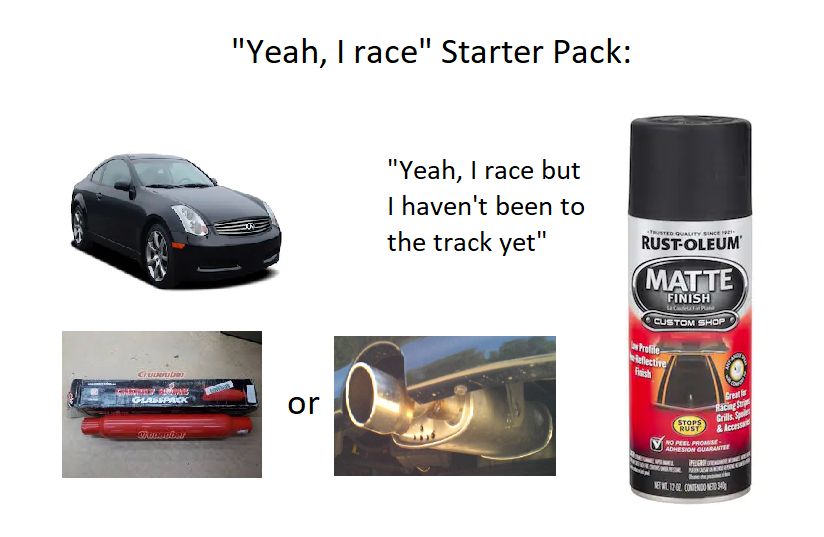Explore the Why Is My Car Loud When I First Start It article containing information you might be looking for, hopefully beneficial for you.

Why Is My Car Loud When I First Start It?
Starting your car should be a smooth and quiet process, but sometimes it can be accompanied by an unexpected loud noise. This can be a concerning issue, as it might indicate a potential problem with your vehicle.
In this comprehensive guide, we will delve into the possible causes of a loud car when first started and provide expert advice on how to resolve the issue. By understanding the underlying causes and taking the necessary steps, you can ensure a quieter and more enjoyable driving experience.
Exhaust System Issues
A noisy exhaust system is a common culprit for a loud car upon startup. Over time, the exhaust components like the muffler, catalytic converter, or exhaust manifold can become damaged or corroded, leading to excessive noise.
Additionally, loose or disconnected exhaust pipes can create a loud rattling sound. A thorough inspection of the exhaust system is recommended to identify any potential issues. Repairing or replacing the damaged components can effectively reduce the noise levels.
Engine Issues
Internal engine problems can also contribute to a loud startup noise. Worn or damaged engine components such as pistons, valves, or timing chain can create excessive noise during the initial start-up phase.
If the noise persists even after the engine has warmed up, it’s advisable to seek professional diagnosis and repair. Ignoring engine issues can lead to more severe problems, so timely attention is crucial.
Starter Motor Problems
The starter motor is responsible for cranking the engine to start it. If the starter motor is failing or malfunctioning, it can produce a loud grinding or screeching noise during startup.
In some cases, the starter motor may engage with the flywheel but fail to disengage properly, resulting in a continuous grinding noise. Replacing the starter motor can effectively address this issue and restore a quiet startup process.
Loose or Misaligned Belts
Serpentine belts and timing belts play a vital role in driving various engine components. Loose or misaligned belts can slip or rub against other components, creating a loud squealing or chirping sound.
Properly tensioning or replacing the belts can eliminate this noise. It’s also important to inspect the belts regularly for signs of wear or damage, as worn belts can lead to more severe issues.
Spark Plug Issues
Spark plugs ignite the air-fuel mixture in the engine’s cylinders. Worn or fouled spark plugs can cause misfires during startup, resulting in a loud banging or popping sound.
Replacing the spark plugs with new ones can resolve this issue and ensure a smoother startup process. Regular spark plug maintenance is recommended to prevent misfires and maintain optimal engine performance.
Latest Trends and Developments
Advancements in automotive technology have led to the development of quieter engines and exhaust systems. However, certain performance modifications or aftermarket parts can deliberately increase the noise levels of a car.
For instance, high-performance exhaust systems are designed to enhance the sound of the engine. Similarly, cold air intakes can increase airflow and produce a more audible induction noise.
Tips and Expert Advice
When troubleshooting a loud car upon startup, it’s always advisable to consult a qualified mechanic for professional diagnosis and repair. However, here are some tips to consider:
1. Listen attentively to the noise. Identifying the type of noise (grinding, squealing, popping, etc.) can provide clues about the potential cause.
2. Inspect the exhaust system for any visible damage or leaks. Loose or disconnected components should be tightened or replaced.
3. Check the serpentine and timing belts for proper tension and alignment. Worn or loose belts should be replaced.
FAQ
Q: Is it normal for a car to be loud when it starts?
A: No, a car should not be excessively loud when started. A moderate level of noise is expected, but a significantly loud sound indicates a potential issue.
Q: Can a loud startup damage my car?
A: Persistent loud noises during startup can be a symptom of underlying problems that may lead to more severe damage if left unattended.
Q: How much does it cost to fix a loud car startup?
A: The cost of repairs varies depending on the underlying cause. Minor issues like loose belts or exhaust leaks can be relatively inexpensive to fix, while more complex engine problems may require significant repairs.
Conclusion
Identifying the cause of a loud car upon startup can be challenging, but understanding the possible causes and taking appropriate action can help restore a quiet and smooth startup process.
By following the tips and expert advice provided in this article, you can effectively troubleshoot the issue and get your car running quietly again. If the problem persists or seems complex, don’t hesitate to seek professional assistance from a qualified mechanic.
Are you experiencing a loud car startup? Share your experiences and questions in the comments below, and let’s work together to find solutions.

Image: psychoautos.com
You have read Why Is My Car Loud When I First Start It on our site. Thank you for your visit, and we hope this article is beneficial for you.